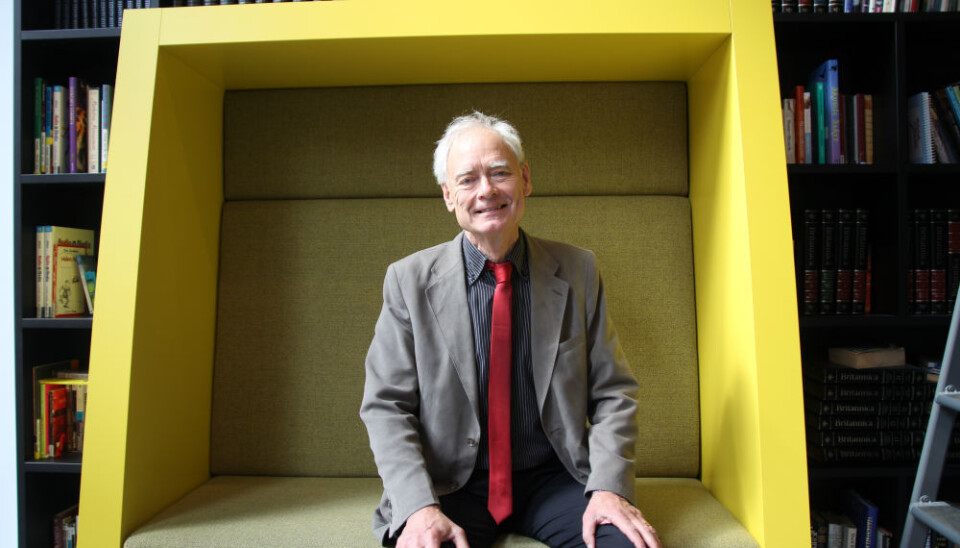An article from The Norwegian National Committees for Research Ethics

Sending Norwegian research ethics out into Europe
Norwegian guidelines for research ethics are unique and can be useful throughout the world, according to a Swedish expert on ethics. However, just having guidelines isn't enough; they must be used and discussed, say researchers.
The first guidelines for research ethics were published in Norway over 20 years ago. In April, two of the Norwegian National Research Ethics Committees, NESH and NENT, issued new editions of their guidelines (see the box).
During the launch of the new editions, the guidelines were praised for being current and addressing relevant issues. At the same time, several representatives of the research communities pointed out that guidelines in themselves are not enough – the institutions must make an effort in order for them to actually have an effect.
"Guidelines are a very good instrument and tool for us at the institutions in our work to build a healthy research culture. But they can only play a part if they are used," says Dag Rune Olsen, Rector of the University of Bergen.
Reverence for research ethics
Olsen points out that the institutions are responsible for publicising the guidelines and using them. Ann-Helén Bay, Dean of the Oslo and Akershus University College of Applied Sciences, agrees with the Rector.
"As experienced researchers, we must remind ourselves and each other of the importance of research ethics. We must also ensure that the uncompromising requirements associated with ethical research are impressed upon students and, not least, PhD candidates. I believe that many institutions can do better here."
Olsen and Bay ponder how to ensure that the guidelines are actually complied with.
Olsen believes that there is a need for an ongoing discussion about the guidelines, both in the public arena and within the Norwegian National Research Ethics Committees. He initiated a heated discussion in 2014 when he asked NENT to address the ethical aspects of petroleum research in connection with a special agreement at the University of Bergen.
"The guidelines drawn up for us by the Committees must be constantly tested against key fields of research that are of great interest to society," states the Rector.
Poor system in Sweden
Göran Collste, Professor of Applied Ethics, Linköping University, Sweden, was invited to the launch to provide an outside perspective on the guidelines for research ethics.
"It is my impression that the Norwegian guidelines are unique. Around the world there are various guidelines for special areas like medical misconduct, but none that are as comprehensive and exhaustive," he says.
Collste has extensive experience serving on different research ethics boards and committees. He is also a prominent debater. Lately he has participated in the debate regarding the case against Paolo Macchiarini at Karolinska Institutet regarding his transplants of artificial trachea.
Collste believes that Sweden's starting point is worse than Norway's – partly because Sweden does not have its own guidelines for research ethics and also because it has a poor system for handling research fraud and scientific misconduct.
The ethicist wants to bring attention to the Norwegian guidelines in Sweden, amongst other things sending them to key players in research ethics. However, he is not particularly optimistic about the outcome.
"The general attitude towards research ethics in Sweden is completely different. The structures are very rigid, and function in a specific way," he says.
"There is no forum in which there is a lively debate on research ethics. Much Swedish research and research education is conducted without spending much time reflecting on ethical issues," he continues.
EU guidelines
Collste nevertheless believes that the guidelines can play a part outside Norway, including in a EU setting. He is one of the representatives of the SATORI project, which is currently charting the systems that surround ethical assessment of research and innovation in Europe. In the autumn of 2017, the plan is to launch guidelines for the field.
There are no participants from Norway, but Collste wants to mention the NESH and NENT guidelines as good examples.
"I believe that they can play a great part in the shaping of the SATORI guidelines," he says.
Despite cultural differences, the ethicist is of the opinion that the Norwegian guidelines are, in principle, sufficiently universal to be applicable in any country.
"I have cooperated with both Uganda and Malaysia on research, and believe that most of the elements in the Norwegian guidelines would be of practical use there as well," he says.






























